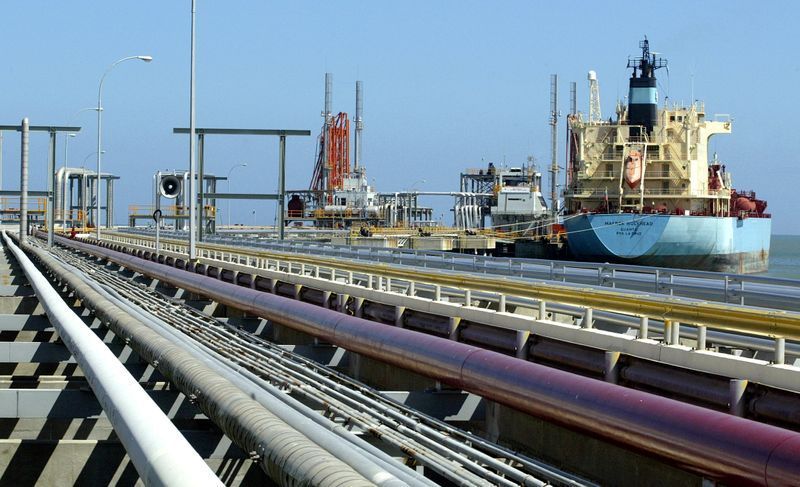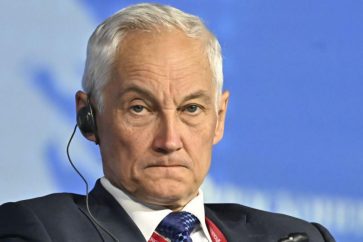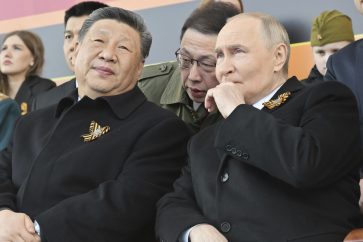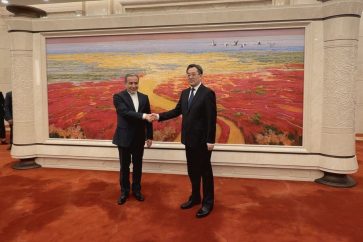Venezuela has reportedly resumed direct oil shipments to China after brutal US sanctions against the Central American nation forced the trade to go underground for more than a year.
Two China-flagged very large crude carriers (VLCC) with the capacity to transport some nearly 2 million barrels of crude each loaded Venezuelan heavy crude at the Jose terminal in recent days, Reuters reported Friday citing internal documents from Venezuela’s state oil company, Petroleos de Venezuela (PDVSA) and Refinitiv Eikon vessel-tracking data.
One of the vessels, the Xingye, departed from Venezuela on Thursday signaling Singapore as its destination, Eikon data showed. The other carrier — the Thousand Sunny — has not yet set sail, according to the report, which noted that both tankers were owned by a PDVSA-PetroChina joint venture until earlier this year when PetroChina assumed full ownership.
China has joined Venezuela’s two other close allies – Russia and Cuba – in publicly censuring US sanctions on OPEC-member Venezuela.
The imposition of the American sanctions against oil-rich Venezuela was part of a persisting plot by the hawkish Trump administration to oust President Nicolas Maduro, though they failed to completely halt Caracas’s oil exports or to overthrow the president.
According to the report, Maduro’s administration held a meeting with a delegation of Chinese officials and businessmen this month to tout a new law to promote investment in the face of what Caracas refers to as Washington’s “blockade” of the country. The law allows Venezuela to sign new oil deals confidentially.
Maduro stated during the meeting that he would send a letter to China’s President Xi Jinping encouraging more robust commercial relations between the two countries.
“We have to move forward with investments, with wealth creation, with new partnerships. The anti-blockade law allows all that. Let’s do it in this new phase,” he added.
The resumption of direct imports by China comes after Washington earlier this year took action against units of Russia’s Rosneft and later threatened to act against shipping firms that continued to do business with PDVSA following trade sanctions first imposed in early 2019.
Since its units were struck by US sanctions, Rosneft has halted business with PDVSA, the company has declared. However, the sanctions on its subsidiaries have not been lifted.
The US State Department, the report noted, offered no comment about the resumption of direct oil trade between Venezuela and China.
According to the report, Chinese state companies China National Petroleum Corp (CNPC) and PetroChina – long among PDVSA’s top customers – stopped loading crude and fuel at Venezuelan ports in August 2019 after the Trump administration extended its sanctions on PDVSA to include any companies trading with the Venezuelan state firm.
PDVSA’s customers instead increased their shipments to Malaysia, where transfer of cargo between vessels at sea have allowed most of Venezuela’s crude oil to continue flowing to China after changing hands and using trade intermediaries.
A US Treasury Department spokesperson was quoted in the report as saying on Wednesday that “those engaged in activity in the Venezuelan oil sector risk exposure to sanctions.”
It said the first tanker to resume transport of Venezuelan crude directly to China was the Kyoto, which had loaded 1.8 million barrels of heavy crude at Venezuela’s Jose port in late August, according to shipping monitoring service TankerTrackers.com.
At least one other tanker, the Warrior King, is discharging Venezuelan crude at China’s Bayuquan port, while two PetroChina-owned vessels loaded oil in Venezuela this month.
The Kyoto — chartered by a company called Wanneng Munay according to an internal PDVSA document — discharged its load at China’s Dalian oil terminal in early November after covering a large portion of its route to Asia in a so-called “dark voyage,” with its location transponder offline, according to Refinitiv Eikon’s data.
Wanneng Munay is among a group of more than a dozen Russian-registered companies with no known prior oil trading experience that have emerged as PDVSA customers in recent months.
The emergence of such firms has allowed PDVSA to continue shipping crude oil to Asian destinations in recent months despite withdrawals by established customers such as India’s Reliance Industries and Thailand’s Tipco after the US Treasury terminated their exemptions to sanctions.
The direct oil shipments come ahead of January’s transfer of power in Washington from Trump to Democratic President-elect Joe Biden, whose advisers have stated that he would retain sanctions against Venezuela but shift the focus of the American strategy.
Source: Agecnies




